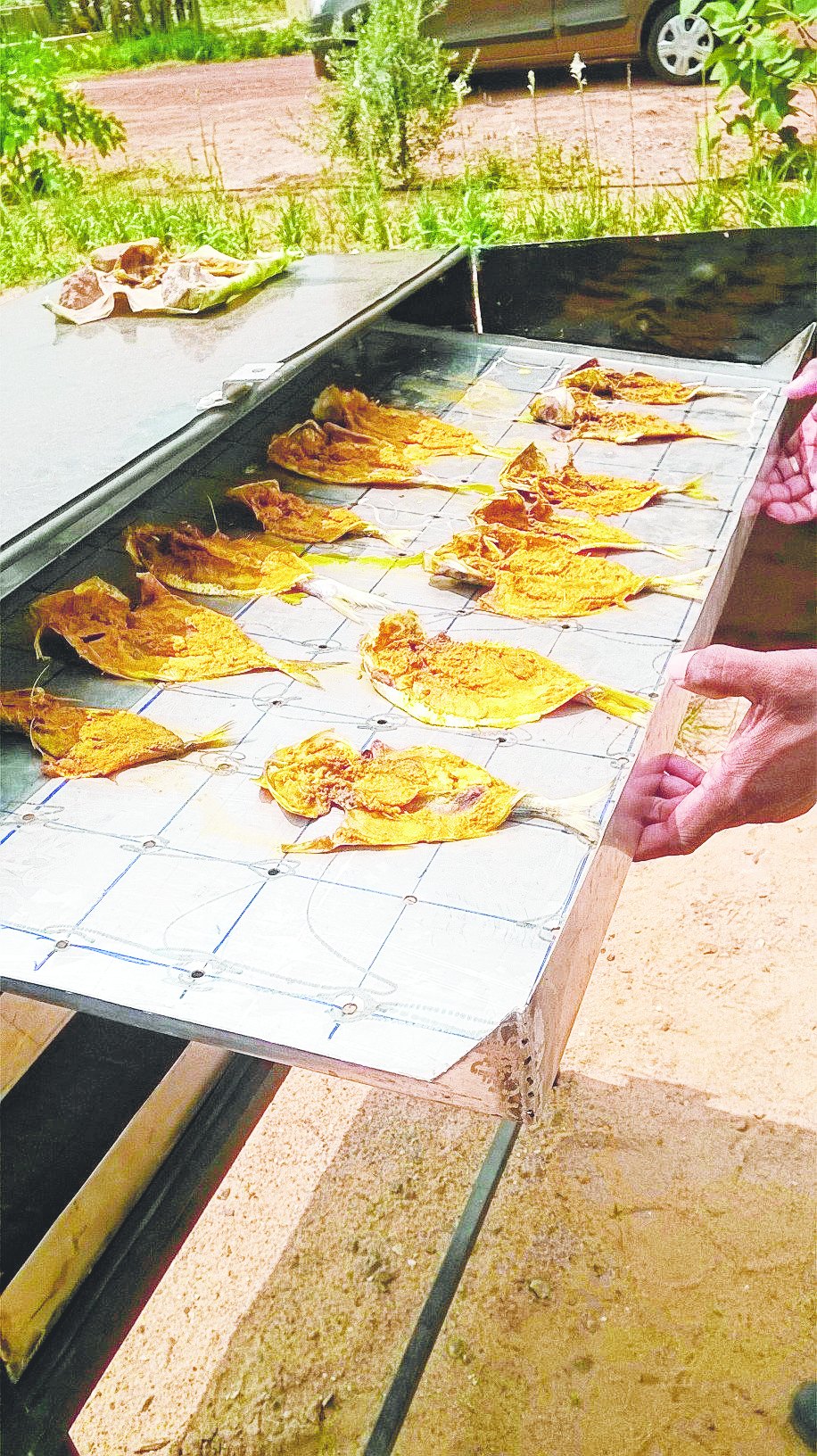

Bhubaneswar, May 26: A group of students and the faculty members at the Centurion University of Technology and Management worked with aluminium sheets and steel trays to create an eco-friendly solar drying machine for fishermen in the coastal villages of the state.
The solar dryer can process the catch in an easier, cost effective and eco-friendly way and is expected to benefit many households, especially fisherwomen who eke out a living by selling dry fish.
Although drying fish under the sun has been an existing practice among the fishing community, it has several disadvantages like spoilage of the product due to adverse climatic condition like rain, wind, moisture and dust, which leads to fungus growth. The process is also highly labour intensive, time consuming and requires a large area.
"The solar drying facility is the best solution and it is way better than natural drying. Solar dryers developed by us will not only save energy but also save a lot of time, occupy less area, improve quality of the product, make the process more efficient and protect the environment too," said Shiv Sankar Das, a senior faculty member of the university.
The project was supported by the Innovative Change Collaboration (ICCo-India), which is currently working on coastal livelihood security in Ganjam district and looking for an efficient machine to assist the poor fisherwomen.
ICCo plans to supply the solar dryers to self-help groups in Ganjam on a pilot basis and thereafter build model fish processing units in selected villages of the district.
"Time and again, educationists have emphasised that institutions must innovate and come up with solutions to better the lives of the locals and this is exactly what our students have done. The solar machine will help the fishermen to come up with improved products at a very cost effective and eco-friendly way," said Haribandhu Panda, the pro vice-chancellor of the university.
"Such projects help the students to put their classroom-learnt theories into practical application. More organisations like ICCo India must trust the calibre of the Indian youth and provide them an opportunity to give shape to their ideas," Panda said.
The machine-dried fish will ensure zero wastage and improve hygienic standards. With the scientific method of processing and packaging, the value added product will be pushed for sale in the supermarket chains as well as in the local market. "It took us about a month to design the machine. Our previous experience of making a solar bicycle helped us in a big way," said Suraj Bhardwaj, a final-year mechanical engineering student who was part of the project.










